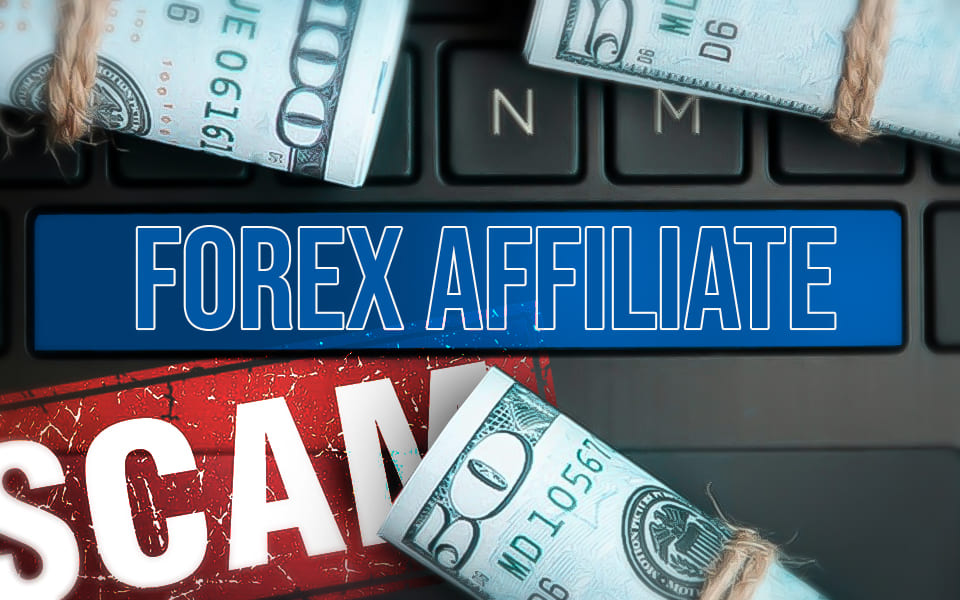


In the ever-evolving world of forex trading, affiliate marketing has emerged as a powerful tool for generating income. By promoting and referring traders to forex brokers, individuals can earn commissions and tap into the lucrative potential of this industry. However, alongside legitimate opportunities, there are also scams and deceptive practices that prey on unsuspecting individuals. This article sheds light on the prevalence of affiliate marketing scams in the forex market and provides crucial insights to help readers safeguard themselves against such deceptive schemes. By staying informed and taking necessary precautions, traders can navigate the world of Forex affiliate scams with confidence, ensuring a secure and fruitful experience.[
A forex affiliate scam refers to fraudulent schemes or unethical practices within the forex affiliate marketing space. It involves dishonest individuals or companies who deceive affiliates by promising high commissions, attractive bonuses, or other incentives but fail to deliver on their promises. These scams may involve non-payment of earned commissions, manipulation of tracking systems, or misleading marketing tactics. Forex affiliate scams exploit the trust and efforts of affiliates for personal gain while leaving them with financial losses and a damaged reputation.
In a Forex affiliate scam, perpetrators typically use deceptive tactics to exploit unsuspecting affiliates. Here’s how it can work:
Affiliate marketing is distinctly different from a pyramid scheme, as it operates on a legitimate marketing model that emphasizes the promotion and referral of products or services. In a pyramid scheme, the primary focus lies on recruiting individuals into the scheme, without substantial emphasis on the sale of actual products or services. Conversely, affiliate marketing involves individuals earning commissions based on their successful promotion and referral of customers to specific products or services. These commissions are directly linked to the performance of their promotional efforts, such as generating sales or desired actions through their referrals.
Unlike a pyramid scheme, the foundation of affiliate marketing rests upon the actual sale of products or services, thereby ensuring a genuine revenue generation process. It is widely recognized as a regulated marketing practice employed across various industries, including the forex market, and entails the promotion of legitimate products or services to targeted audiences.
Identifying a Forex affiliate scheme requires careful attention to certain red flags that may indicate potential fraudulent activity. Here are key indicators to watch out for:
To minimize the risk of falling victim to an affiliate marketing scam, it is crucial to follow certain guidelines. Start by conducting thorough research to verify the legitimacy of the affiliate program and affiliated brokers. Ensure they are regulated and compliant with industry standards. Be wary of exaggerated promises of high earnings that seem too good to be true. Carefully read and understand the program’s terms and conditions, emphasizing transparency and clarity. Also consider the reputation and track record of the program and brokers, giving preference to established entities with positive feedback.
Trustworthy affiliate networks that thoroughly vet and authenticate programs can be relied upon. Seek advice and feedback from experienced affiliates or industry professionals. Exercise caution and listen to your instincts when encountering high-pressure tactics or a sense of urgency. If, after taking all these precautions, you unfortunately become a victim of a scam, it is advisable to seek help from a fund recovery service specializing in recovering funds from fraudulent schemes. The experts in Zecoup in this case will offer valuable guidance and support throughout the recovery process. By following our guidelines you can safeguard yourself against affiliate marketing scams and improve the chances of recovering any lost funds.
Yes, forex brokers typically offer affiliate programs where individuals can earn commissions by referring new traders to the broker.
No, forex itself is not an affiliate. Forex is a decentralized global market where currencies are traded, while an affiliate is an individual or entity that promotes products or services for a commission.
The Forex affiliate commission can vary depending on the broker and the specific affiliate program. Commission rates can range from a few dollars to a significant percentage of the referred client's trading volume or profits.
If you have been scammed in a Forex affiliate scheme, don’t despair. Contact Zecoup today for professional assistance in recovering your lost funds and seeking justice against forex affiliate scams.
